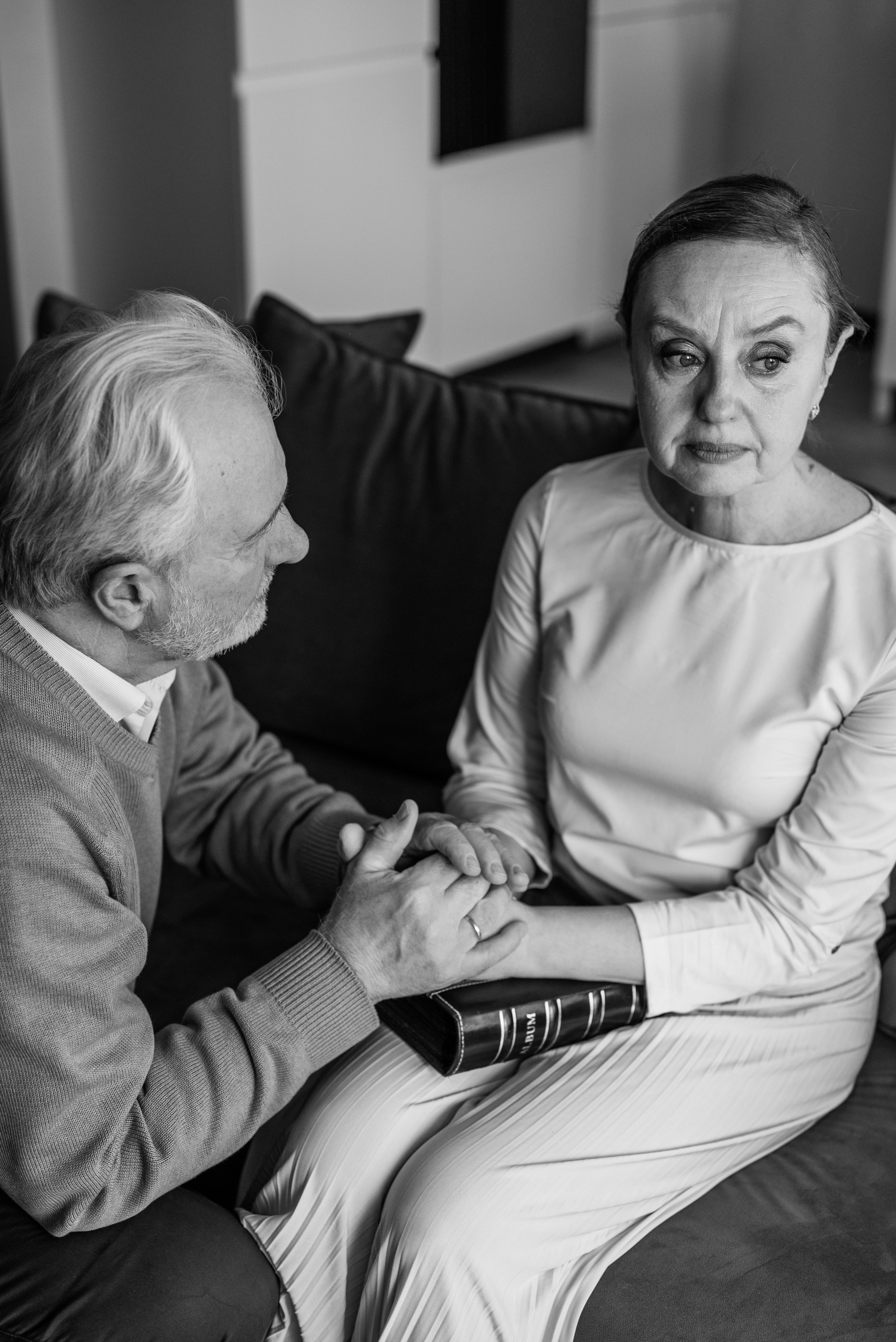Growing through Grief
By the time we start working on our emotional and mental health we all have ample things to grieve. Sometimes we need to grieve our childhoods. Such as what it wasn’t and what we wanted it to be. Sometimes we need to grieve our marriages and the lost dreams of what we hoped marriage would be. Others need to grieve their adult life. Perhaps it’s being single/widowed or never married. Being alone, and lacking community, close friendships and feeling isolated.
In the new undertakings of life changes, there is almost always grief. New homes, new towns, churches, communities, new friends, etc. Which, of course, means saying goodbye to the old. Lamenting the loss of our friends and friend circles changing, whether high school is done, or college or a new situation has left us as outcasts.Often facing our losses can cause us to begin to question our identity and life purpose.
Perhaps we are battling with a relationship on the account of addiction. As much as we desire to remain committed, the disease robs the addict from the ability to be physically, emotionally or spiritually present to us.
For years we’ve begged, pleaded, prayed, screamed, yelled, and offered our best advice, but none of this has worked. If so, we may have found it best to leave, or at least take a sabbatical and some much-needed space. To choose ourselves and put ourselves on the scoreboard may feel foreign to us. This can be especially true if we’ve endured physical, emotional or spiritual abuse.
Leaving what is familiar is hard.
Grieving for our own autonomy
For some, grief is not as obvious. It’s a secondary type of grief. Perhaps we are grieving for our own autonomy. By that, I mean we may need to re-establish our anonymity, know what our likes, dislikes and morals and values are. Sometimes we need to do this by taking physical space from the people we love; to grow and heal.
We need to prayerfully consider what we need to do to discover our own self and heal.
Can you relate to grieving for your own autonomy? What practices have you taken to discover who you are? What sacrifices were you willing to make, for a short period, to gain a better long-term return on the investment and a healthier you?
What is Grief?
Grief is a response to loss. As one can see from above, there are many forms of loss; far more than socially talked about. According to Dr. Elisabeth Kubler Ross, in her 1969 book, “On Death and Dying”, grief is a universal emotion experienced by all people at some point in time. According to Ross there are five stages of grief: denial, anger, bargaining, depression, and acceptance. These stages were originally created for people who were terminally ill. They have been incorporated for anyone coping with grief. (grief.com) David Kessler who has carried on Dr. Ross’s work has noted there is a sixth stage of grief. It is making meaning of one’s pain. I am so glad to see this because it follows suit with what we learned with Dr. Carl Jung’s theory on psychology – that we need to make purpose and meaning of our pain and suffering.
Remember, making meaning of our pain means discovering where God, or our guardian angel, was in time of distress. It may mean gaining understanding on how that event or situation happened. Or asking “why me”? It’s being able to find a positive that exceeds the negative.
Grief is not linear. It goes up and down and cycles, and not in any particular or predictable order.
https://www.bethelfunerals.com.au/5-stages-of-grief-self-care
It may also look like this.
What is your experience with the grief cycle? Were you aware of it while in it? Have you applied them to various areas of your life? If so, where? Are you currently wrestling with or experiencing grief?
How do we grieve? –Here are three tools to help yourself start to recognize and process grief today. Our program has so much more, so don’t hesitate to seek help or see a licensed counselor if necessary. Sometimes, talking with a trusted friend or your parish pastor can be a great help.
- Name our feelings. Use a feelings wheel.
- Allow our feelings to be witnessed by a safe trusted person. Our disciple is always a good choice. They can listen to our anger, or hold out tissues while we cry.
- Recognize the things we are powerless over: the people, places, circumstances, and situations we cannot change.
- In our powerlessness, we turn the people or situations over to God.
- Maybe we are angry at God that he didn’t take away the sickness, or stop the addiction issues, or prevent an unimaginable event. We take that anger we have to God. We let him know. We feel it. He already knows anyway.
- Ask myself, “is this person or thing in my hula-hoop? Meaning: is it in my control?
- Am I wanting more for someone else’s life than they want for their own?
- Maybe they want to be healed, too, but their prayers go unanswered. (Talk to your disciple. I highly encourage you to seek a support group specific to grief.)
My experience is grieving is a part of life. We all have thigs to grieve and it looks a little differnt for each and every one of us. When we take time to sit with our loss, acknowledge the feelings, and be heard, we can move on.
